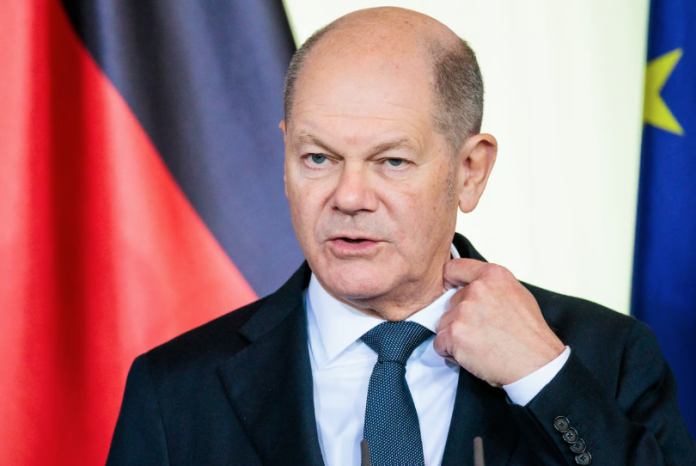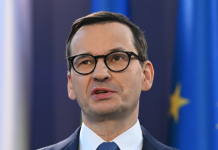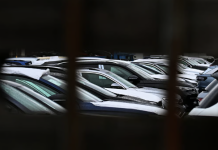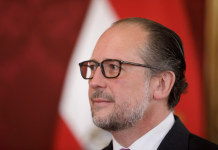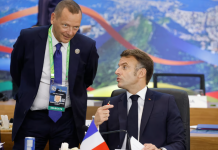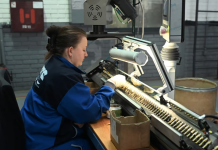German Chancellor appeals to the EU executive to slash regulation and support industry with subsidies — only to be accused by his conservative opponents of stealing their policies.
BRUSSELS — An increasingly desperate Olaf Scholz has issued an appeal to Brussels to support European industry, only to draw a rebuke from his conservative opponents that he is stealing from their policy agenda in a bid to stave off a general election defeat next month.
In a letter to European Commission President Ursula von der Leyen obtained by POLITICO, the German chancellor calls on the executive to offer more cash for businesses and to slash red tape that he says is holding back the bloc’s industries.
Echoing long-standing demands from Europe’s center right, Scholz, a Social Democrat, wants a delay on climate disclosure rules affecting businesses; the waiving of fines for car manufacturers that fail to meet new emission targets; and subsidized electricity prices.
Scholz’s asks are not new and repeat demands made by his center-left government last year. But by putting them into a formal letter to von der Leyen, a fellow German, Scholz is making a last-ditch effort to recast his reputation as a pro-business leader with a plan to save Germany’s ailing economy and critical auto industry.
His critics aren’t buying it.
Scholz “seems to be slipping into schizophrenia toward the end of his term of office,” said Hildegard Bentele, a European lawmaker from Germany’s Christian Democratic Union, which is part of the center-right European People’s Party group.
His suggestions are “almost 100 percent EPP policy,” Bentele argues, adding that she “wonders where he was last year” when von der Leyen was presenting her plans for her second term as Commission chief.
With less than two months to go before a snap election on Feb. 23 that he’s expected to lose, Scholz is running out of time. Polls put his Social Democratic Party in third place with 17 percent, well below the CDU (30 percent) and just behind the far-right Alternative for Germany party.
German businesses have criticized Scholz’s government for unambitious reforms, uncompetitive energy costs and excessive bureaucracy at a time of stagnation in Europe’s largest economy. The Bundesbank has slashed its growth forecast for 2025 to just 0.2 percent, with United States President-elect Donald Trump’s threats to slap tariffs on all imports.
Germany’s export-based economy would suffer if it’s caught between Trump’s tariffs and Chinese industrial subsidies: The country’s companies have high exports to both the U.S. and China.
Scholz claims the European Union’s policies should enable those exports and not anger trading partners. One such example is a planned EU carbon border tax, the Carbon Border Adjustment Mechanism.
According to Scholz, the carbon tax needs to be reworked to boost the attractiveness of energy-intensive products, like steel, made in Europe. As it stands, the CBAM would only impose tariffs on incoming products, shielding European companies from cheaper products that don’t meet the same standards.
German automakers, meanwhile, are highly exposed to the Chinese market — making Berlin a staunch opponent of the Commission’s duties on made-in-China electric vehicles following an anti-subsidy investigation pushed for by Paris. Scholz again decried the duties in his letter, calling for a negotiated solution.
Franco-German alliance
While France and Germany are at loggerheads over the made-in-China EV duties, Scholz highlighted the two’s unlikely partnership to lobby for an end to the fines that automakers face this year should they fail to hit new emission targets.
A coalition of EU countries is advocating for the waiver, including a proposal from Italy and the Czech Republic that calls for an earlier review of the overarching 2035 legislation requiring zero-emission vehicle sales.
France and Germany opted out of cosigning the mandate over disagreements about the use of biofuels, but conspired with Italy ahead of the EU’s Competitiveness Council meeting in November.
“We didn’t agree on everything, but we agreed that we have a problem,” said a French government official with knowledge of the discussions who was granted anonymity because they were not permitted to comment on the matter. “We basically converged on the fact that we would act together on the Competitiveness Council to put forward the issue of the fines.”
Such a move would be welcome news to major automakers like Volkswagen and Renault that have bemoaned the fines.
But it’s unlikely to win Scholz their votes.
“Germany is at the top when it comes to tax and bureaucracy burdens. It is not enough to just talk about reducing bureaucracy,” German car lobby VDA commented on the letter. “And not only in Germany, but also in Brussels — this is where most of the new bureaucratic costs are now being incurred.”
Rehashing old grievances
Another big request from Scholz is for a two-year delay on the EU’s incoming corporate sustainability disclosure rules, which the shaky French government also supports. Or at least, the old one did.
Adopted in 2023, the rules require businesses to report on climate risks their operations are exposed to, as well their own impact on the environment. So far, only the largest companies are expected to report this information.
Ministers from Scholz’s coalition had already requested a delay in their own letter to the Commission back in December. That was after former Finance Minister Christian Lindner had said Berlin should seek to abolish the law altogether, and former French Prime Minister Michele Barnier suggested a moratorium on the text.
But again here, the EPP had gotten there first. Now officially expected in the new mandate, a major simplification of the disclosure rules was a campaign promise made by von der Leyen to the EPP.
Scholz’s political opponents were quick to point out the similarities, with Julia Klöckner, the CDU’s economic policy spokesperson, calling the Scholz letter “a helpless election campaign maneuver” that “lacks credibility.”

